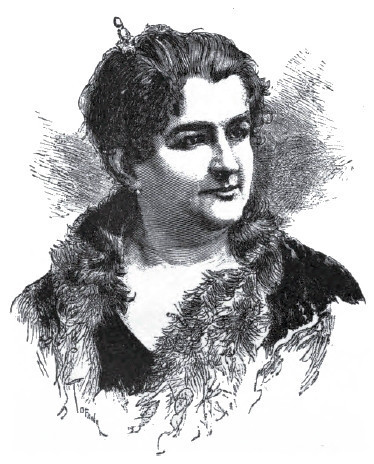A CHRISTIAN WOMAN


DOÑA EMILIA PARDO BAZÁN.
A CHRISTIAN WOMAN
BY
EMILIA PARDO BAZÁN
TRANSLATED BY
MARY SPRINGER
NEW YORK
CASSELL PUBLISHING COMPANY
104 & 106 Fourth Avenue
Copyright, 1891, by
CASSELL PUBLISHING COMPANY.
All rights reserved.
THE MERSHON COMPANY PRESS,
RAHWAY, N. J.
| Chapter I., II., III., IV., V., VI., VII., VIII., IX., X., XI., XII., XIII., XIV., XV., XVI., XVII., XVIII., XIX., XX., XXI., XXII. |
INTRODUCTION.
“I have heard it told of a great-grandmother of mine, of noble family(grandees, in fact), that she was obliged to teach herself to write,copying the letters from a printed book, with a pointed stick for penand mulberry-juice for ink.” The great-granddaughter who said this isthe first woman of letters in Spain to-day; indeed, she is perhaps aswidely known as any contemporary Spanish writer, man or woman. Thoughher achievements do not yet entitle her to rank, as a novelist, withGaldós and Pereda, she has conquered a place only second to theirs, andwith long years of work before her (she is not yet forty) may even cometo rival their great fame. From the Spain that looked with suspicionupon a woman who could more than barely read and write, to the Spainthat counts the literary renown of Emilia Pardo Bazán among its modernglories, is a long way; and the chapters recording the struggles andsuccessive triumphs of Spanish women in their efforts to get withinreaching-distance of the tree of knowledge, will be, when they come tobe written, among the most striking in the history of the emancipationof woman. Señora Bazán must always be a great figure in the record ofthat educational development, and happily we are able to trace her ownprogress pretty fully, taking advantage principally of the charmingautobiographical sketch which she prefixed to her novel “Los Pazos deUlloa.”
She was born in 1852, in Coruña, of a family which tr